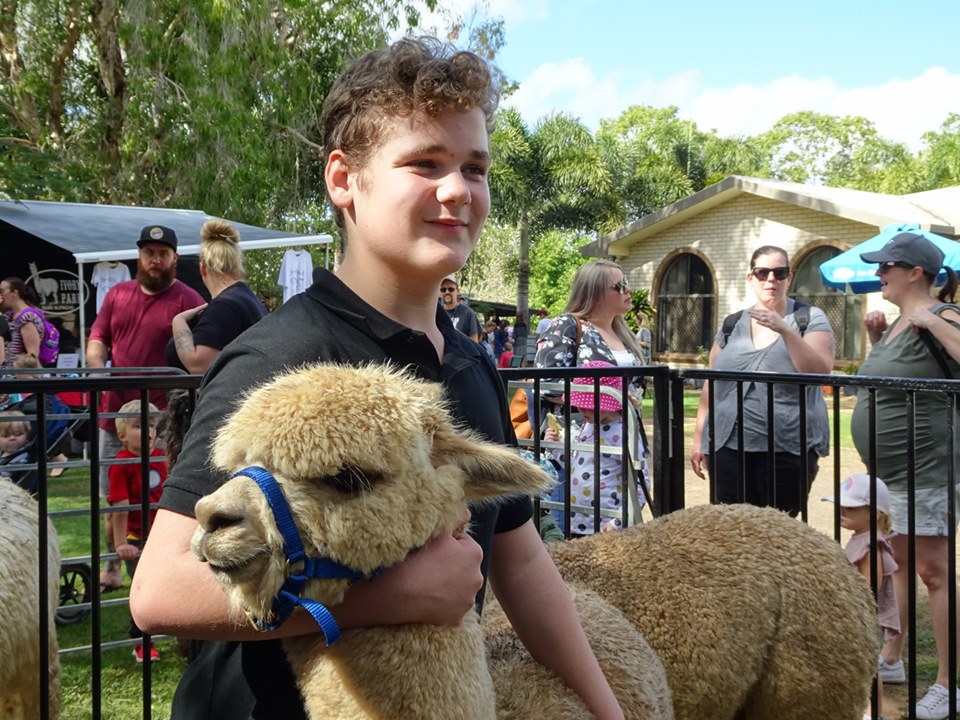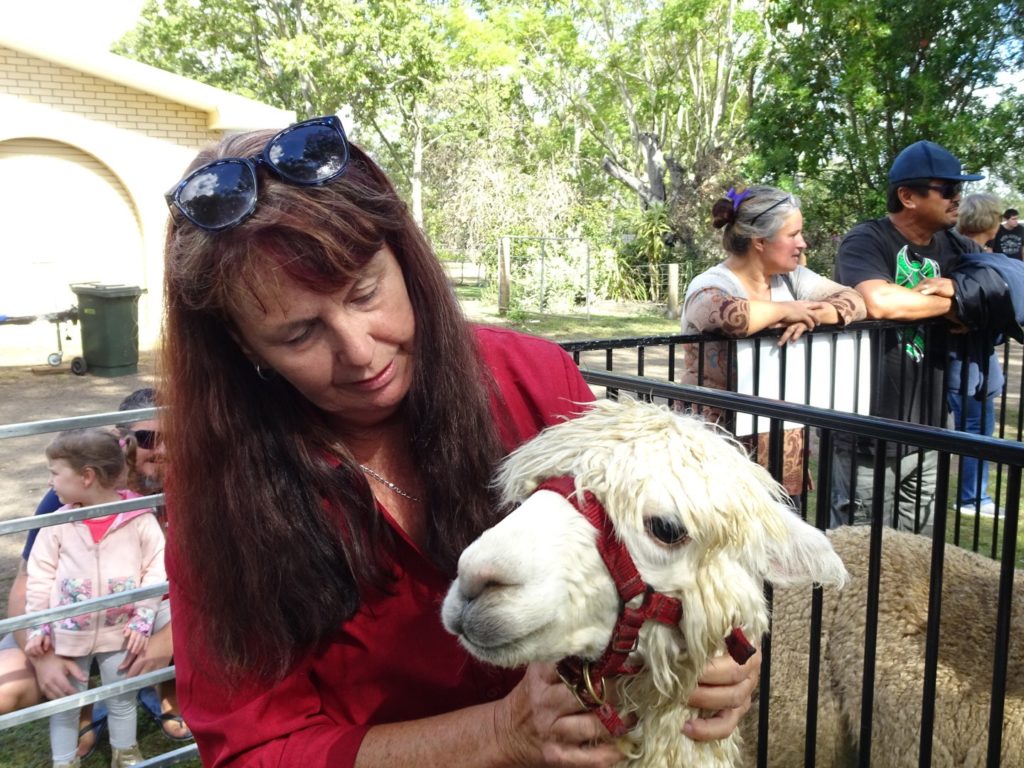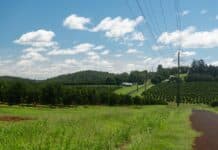
Woolly coats, long necks and big hearts attracted flocks of families to the Allyhar Alpacas and Ivory Park Alpacas open day on Sunday.
Intrigued by the unique animal, which has gained popularity as a farming animal and pet around Australia in the past decade, young and old went along to Allyhar Alpaca Farm to learn more and hope for a cuddle or two.
The common belief that alpacas are known for spitting is more of a misconception according to Ivory Park owner Bev Callaghan.
Bev has farmed alpacas since 2004 and said she only came across a few males that liked to spit, particually during feeding time.
“Generally they don’t spit,” she said.
“And you will actually find alpacas bond with each other and certain people.”
Not a llama
The alpaca is a species that comes from South American and is part of the camelid or camel family.
It is similar to, and often confused with, the llama. However, alpacas are often noticeably smaller than llamas.
They have been referred to as long-necked camels with no humps, especially when recently sheared.
“There is a slight difference between alpacas and llamas,” Bev said.

“Llamas are a lot bigger than alpacas, while alpacas are easier to handle.”
The two animals are closely related and can successfully crossbred.
Alpacas have shaggy necks and camel-like faces with thick lips, pronounced noses, and long ears.
Their large, expressive eyes seem to exhibit both wisdom and childlike curiousity.
Alpaca therapy program
Alpacas are easily domesticated, friendly, gentle and curious, so it’s no wonder they have a soothing effect on people.
Bev is part of the group of alpaca breeders who take their animals to Gin Gin State High School to help students with autism.
The successful program known as alpaca therapy has run for two-and-a-half years and helps boost the student’s confidence.
During the open day Bev provided information about alpacas including expelling a lot of myths.
“Alpacas don’t bite,” she said.
“They actually don’t have any top teeth, but they are able to kill a dog.”
Bev explained how alpacas were used as guard animals to protect sheep and heard animals.
She said if it came down to it they were able to kill wild dogs and foxes to protect the other animals.
Every alpaca is different
It’s not just the colours and coats that make one alpaca different from the rest.
Bev said each had an individual personality, where one may be quiet and the next quite cranky in nature, but one thing was for sure, alpacas don’t like being alone.
“These guys are brilliant to own if you have even a small acreage,” Bev said.
“But you must have more than one.
“They have the same impact as a kangaroo to the soil and do very little damage, but they need friends.
“The more time you give an alpaca the more time it will give back to you.”
The next alpaca open day will be held the last Sunday in August, just before the animals are sheared for the summer months.
- Alpacas were also a hit at this year’s Agrotrend







